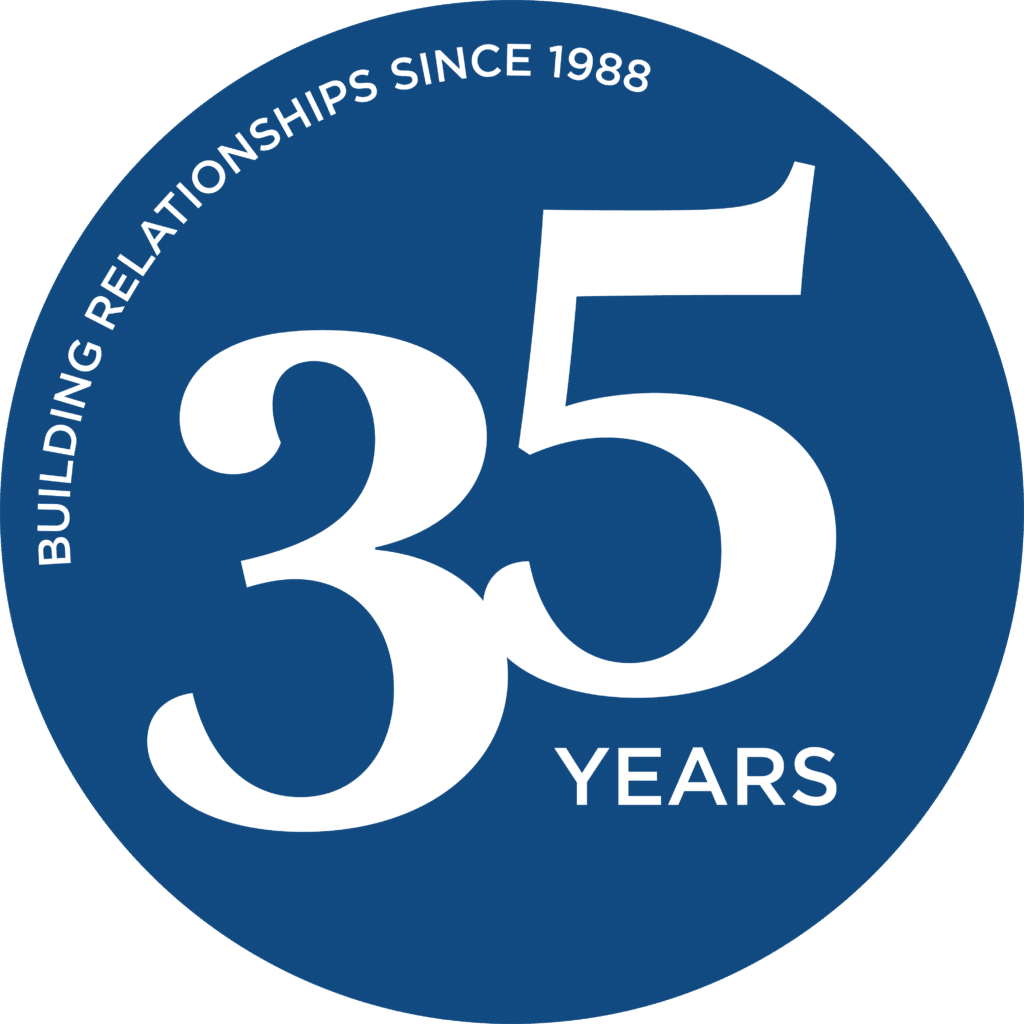
Your coach’s job was to teach you the basics of playing, and after that, to help you hone your skills. The process usually included observing you at play, assessing strengths and areas for improvement and helping you to see what the coach observed. A coach, seeing opportunities for skill building, would spend hours assisting you to achieve new levels of success. During some of these hours, the coach may show a video of current performance, demonstrate how to adjust execution, and structure ‘practice, practice, practice’! For constant fine-tuning and improvement, you repeated these steps, perhaps even with different coaches over the years.
Music, sports, algebra … almost any skill requires a coach, so why not “career management?”
There are two basic types of career coaching, but the questions that need to be answered for either type are essentially the same. The infamous Yogi Berra once said, “You’ve got to be very careful if you don’t know where you’re going, because you might not get there.” So whether the individual is employed or in career transition, the first and most critical question is, “What are your career goals?” And, once identified, the next puzzle to solve is “How can those goals be achieved?”
Assistance for career management comes from many sources. One option is to go to a trusted business friend or professional whose opinion he or she respects. Another option is to personally hire a career coach or, if he or she is lucky, an employer may provide professional coaching or mentoring services. No matter how it’s accomplished, finding a coaching resource can be a pivotal career decision.
WHAT IS CAREER COACHING WHILE EMPLOYED?
A robust career coaching process, whether conducted by a professional coach or a trusted company mentor should include the following steps:
- Assessment. There are a number of scientifically validated assessments to help individuals better understand their current preferences, strengths, opportunities and organizational effectiveness. These can include DiSC, Meyers-Briggs, 360 Assessments, Thomas-Kilmann Conflict Mode Instrument, etc. An objective understanding of the ‘current state’ sets a solid groundwork for career plan development.
- Feedback. This involves a detailed discussion between the coach and the participant of the results of the assessments, reaction to them and analysis of what the results mean. This part of the process can be very helpful to identify the ‘Stop-Start-Continue’ options. In other words, understanding what current practices should be stopped, what new ones should be incorporated, and what is working so well that it should be continued. This type of interaction is also helpful when trying to determine a career direction, especially if the individual is at a career cross-road.
- Action Plan. With individual goals in mind, enriched by information from the assessments, the development of an action plan is equivalent to creating a road map for goal achievement. Most importantly, this plan needs to include what the person being coached is willing to do and how the coach can help to facilitate the process.
- Measurement. As the coachee and coach work together, measuring progress helps identify what is working and what needs modification.
- Follow-up. At some point, the individual being coached will want to move forward on his or her own, at least for some period of time. It is important that both participants in this partnership determine how this is best accomplished.
WHAT ABOUT CAREER TRANSITION COACHING?
When an individual’s career has hit a major bump in the road due to position elimination, a coach is even more critical. Career transition coaching includes a nearly identical process as career coaching. The focus in this case is narrower, with the goal of the individual quickly landing a new and exciting next position.
Individuals going through a career transition will still go through an assessment process and need to put together a plan. In this case, the plan will be their roadmap to landing that important next job.
Although career transition coaching is very similar, there are some differences when it comes to the process. The process includes the following steps:
- Assessment. This could involve some of the same assessment tools as mentioned previously. It also includes individuals assessing what they liked and disliked about previous positions, what their strengths and weaknesses are and what their needs and goals are for the future.
- Feedback. This involves reviewing the results of the assessment process and determining with the coach what the goals should be. This can include a wide range of possibilities, such as starting a business, retiring, obtaining additional education, changing career directions or continuing on the path already chosen.
- Action Plan. This includes determining potential future employers, developing and finalizing a resume, and making sure to use any and all resources to get in front of prospective employers. This step also includes honing interviewing skills and leveraging technology and social media to personal advantage.
- Measurement. Obviously, landing the next position is the best measurement; however, there are many other indicators of job search progress including number of call-backs, interviews, and job offers. Analyzing the metrics allows the coach and coachee to assess progress and make adjustments to the activities and approach.
- Follow-up. As the plan is implemented, regular follow-up keeps the process on track. And, once individuals find a successful placement, a set of closing activities can best position them for success in their new job and for a stronger job search network should it be needed in the future. A good career transition coaching program helps create a plan for initial job success. And, it leverages this ‘good news’ opportunity for the new appointees to thank those in the network that helped them to achieve success.
SO, WHY TAKE ADVANTAGE OF COACHING?
Career coaching and transition coaching involve a lot of hard work and self-examination, which can be uncomfortable. Add to that, there is no guarantee the coachee would meet his or her goals. That can raise the question as to why do it.
Let’s go back to the sports analogy and focus on professional athletes…none of them coach themselves. They can’t afford to coach themselves because this is the career they chose and simply having the raw talent just isn’t enough. They have to mold that talent to a point where they will be competitive. For most professional athletes their career lifespan is short, so it is extremely important to make the best of it.
For those who do not relate to sports analogies look at it this way. If a person isn’t feeling well, they see a doctor. If they need legal advice, they see an attorney. In either of these cases, people who need expert help wouldn’t try to diagnose themselves or represent themselves in a courtroom. In fact, doctors don’t try to treat themselves and attorneys don’t represent themselves. So it only makes sense when the stakes are high, as they are in career management, to seek the help of an independent resource.
Some individuals seek out a mentor or coach and make sure to maintain that relationship throughout their lives. Others seek guidance from various sources for specific reasons or to meet a specific shorter term goal. Either of these approaches can be very rewarding, it all depends on the people involved and the goals.
We know that individuals who seek the help of a coach or mentor are more likely to reach their goals than those who try to do it alone. The primary reason for this is that we simply are not able to see ourselves objectively and as others do. As uncomfortable as it may be, coaches or mentors are able to help coachees to see themselves more clearly. As a result of seeing themselves as others do, the coachees may see potential obstacles to their career goals and work on removing those obstacles with the help of their coach or mentor.
For those who are in a career transition, the value proposition of taking advantage of available support is that most people get better jobs more quickly when they have received career transition coaching. According to the U.S. Department of Labor, the average duration of unemployment in the United States is 36.6 weeks or 9.15 months as of July 2013. CPI, one of the largest talent management organizations in the world, of which CCI is an equity owner, notes that individuals receiving services from their partner companies are unemployed for 91 days or 2.9 months, less than 1/3 of the DOL national average.
IMPROVE CAREER MANAGEMENT BY TAKING ACTION
In today’s economy, the likelihood of a person having his or her position eliminated at least once during his or her career is high. In addition, we hear in the media that the economy is growing slowly and job growth is lagging behind. That makes the competition for jobs stiff. Just as in professional sports of any kind, to ensure readiness for the competition, competitors need a good coach.
So currently employed or not, make sure that you get some career coaching to help you achieve that competitive edge.
Kathleen E. Boger, MSM, CLU, FLMI
Client Services
CCI Consulting


